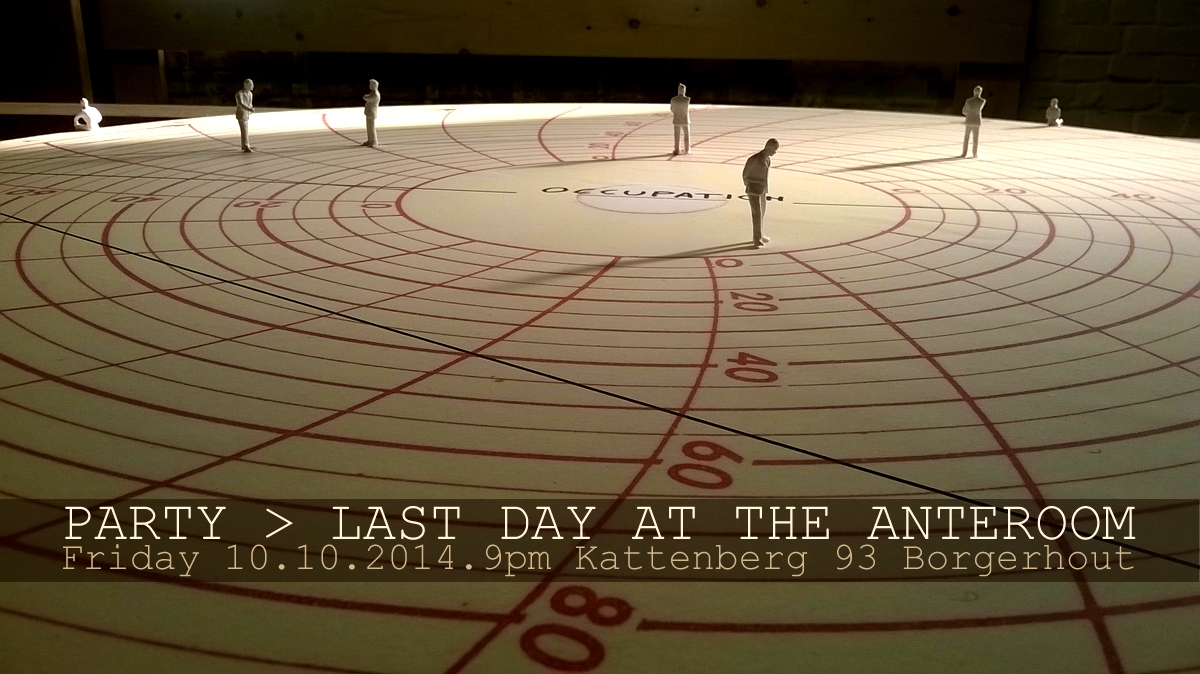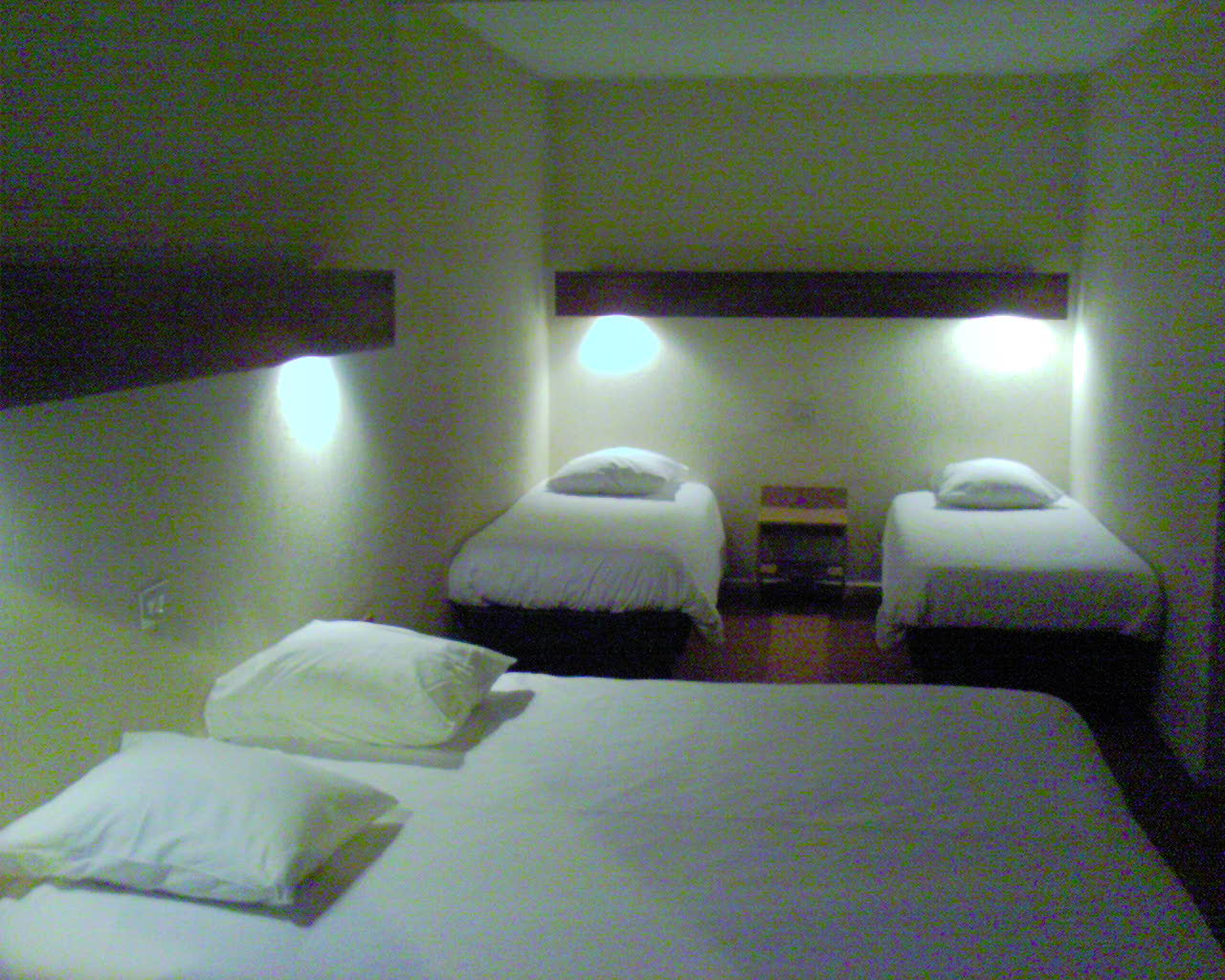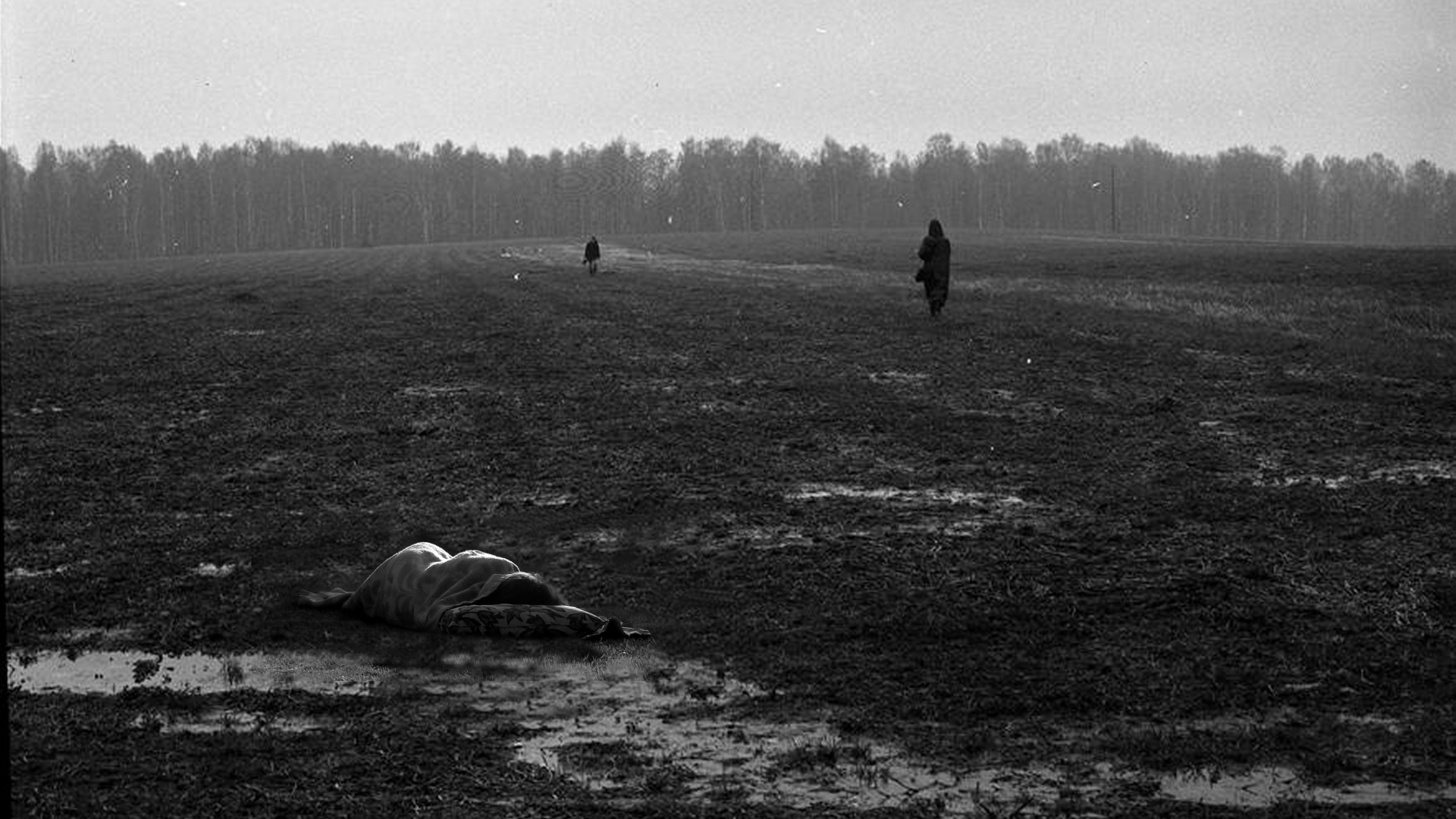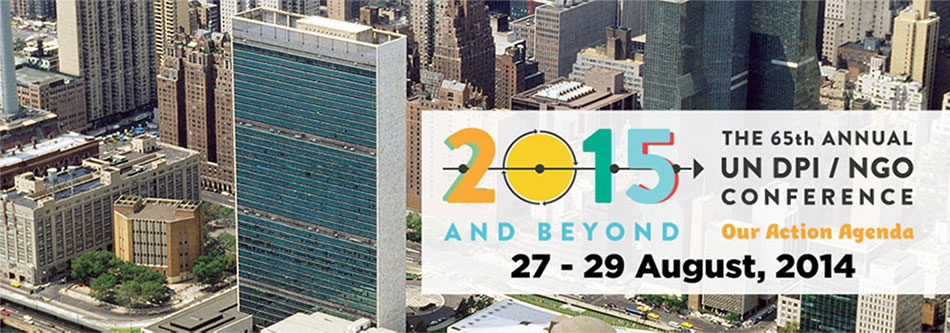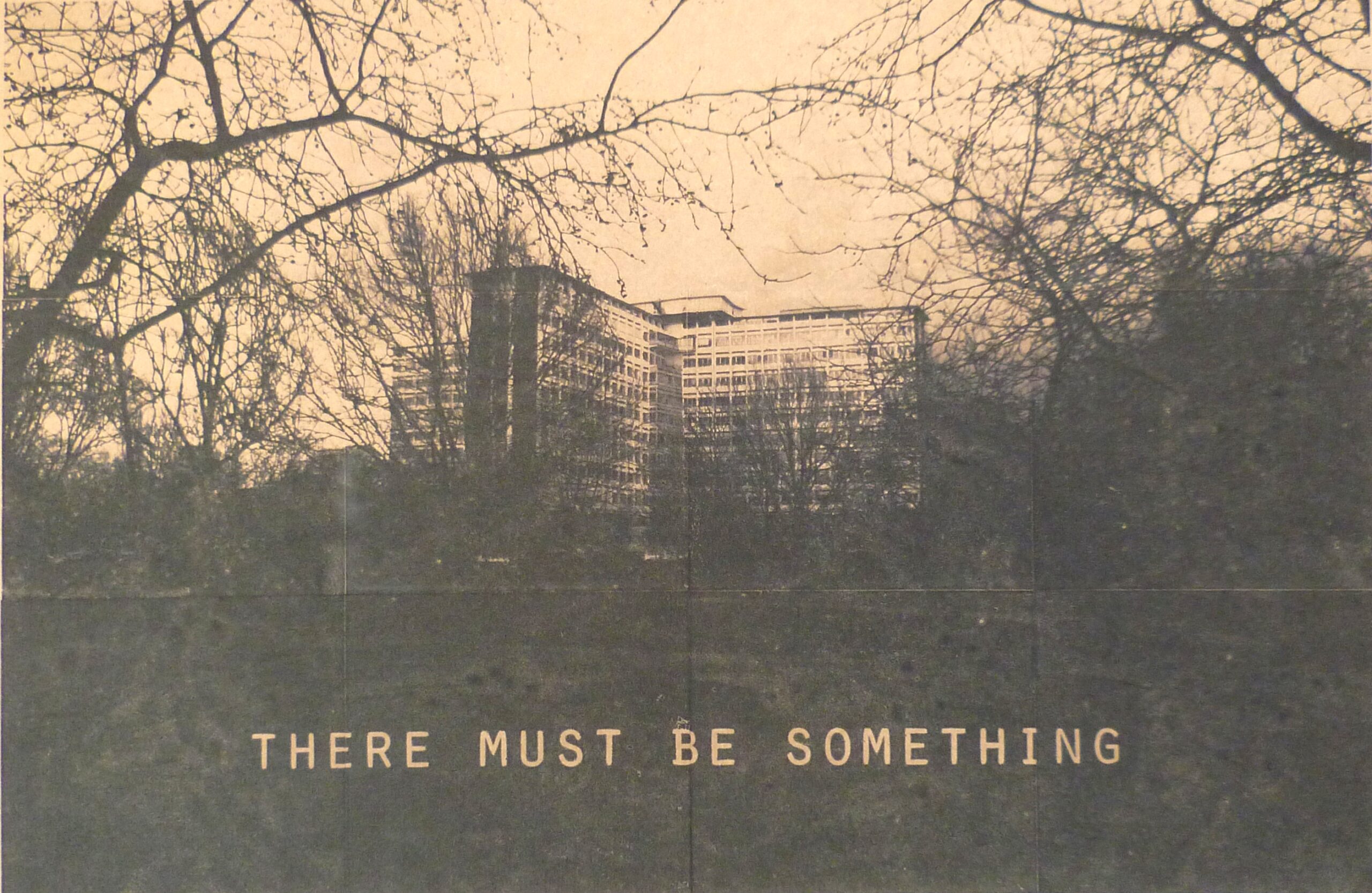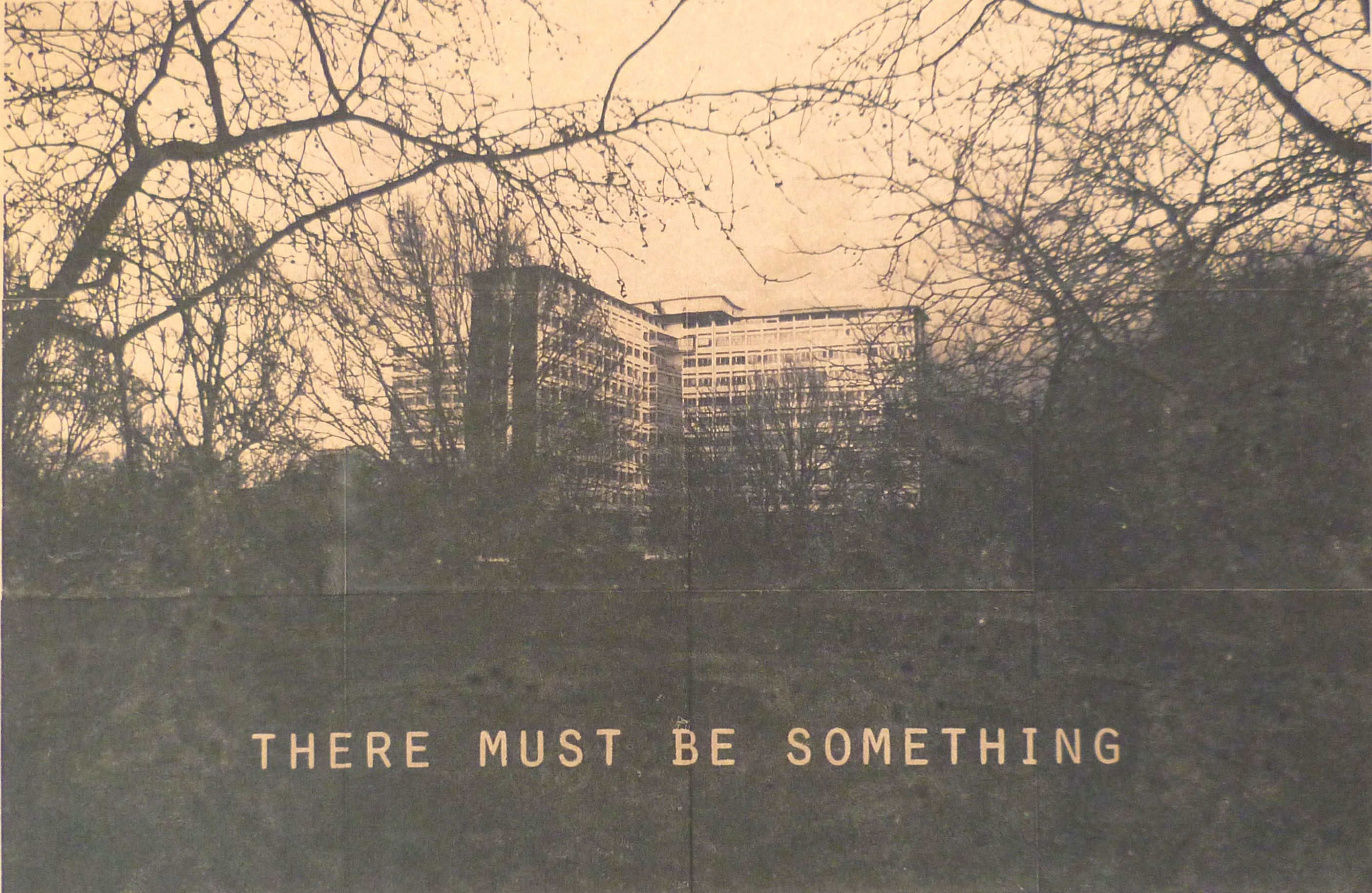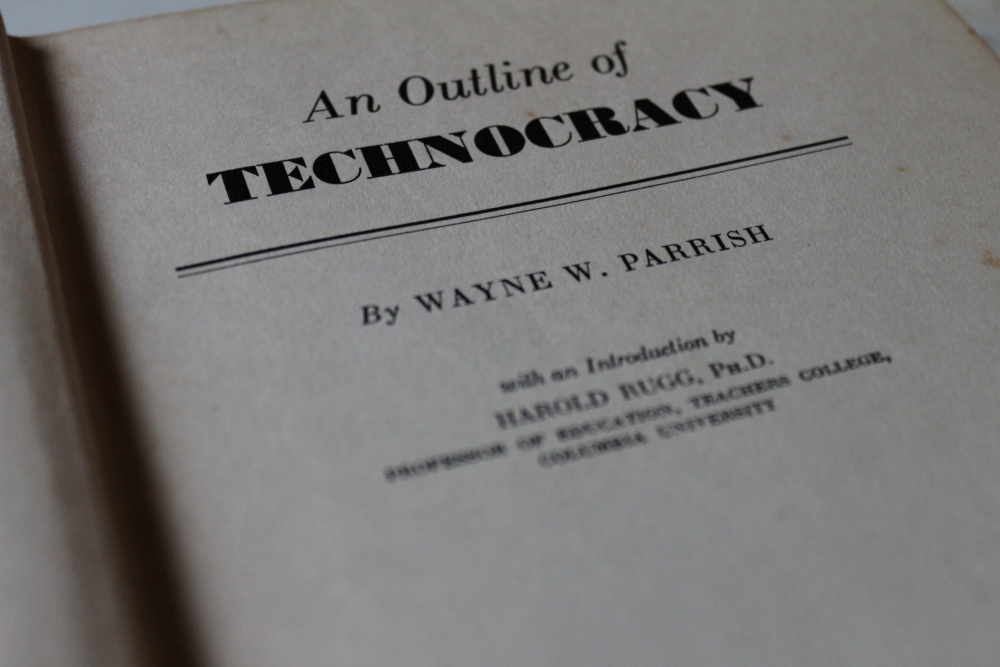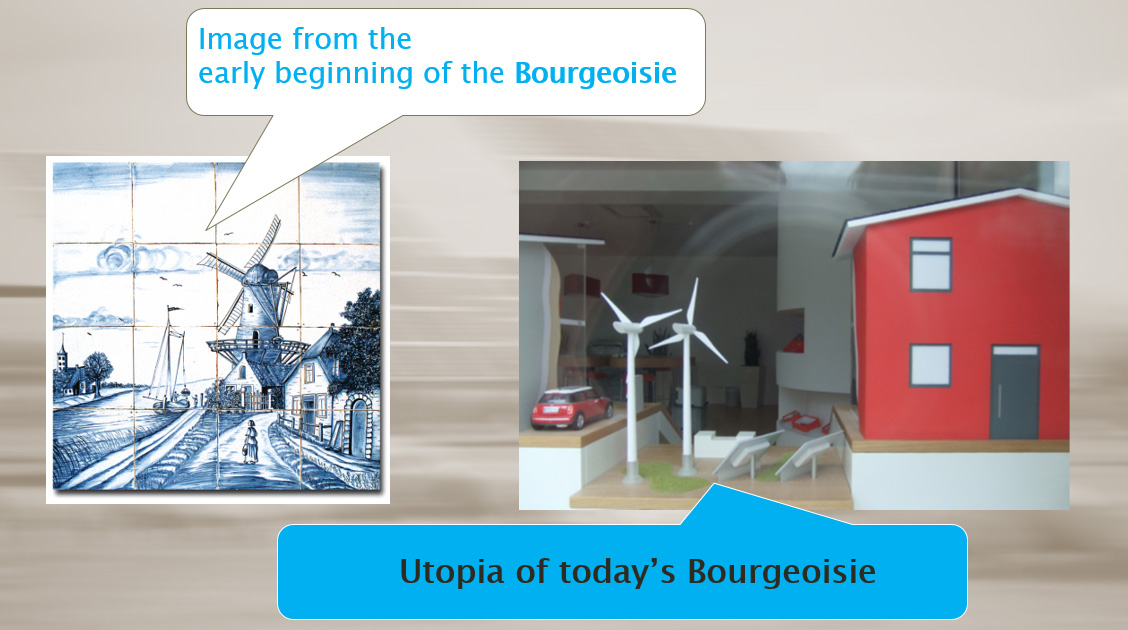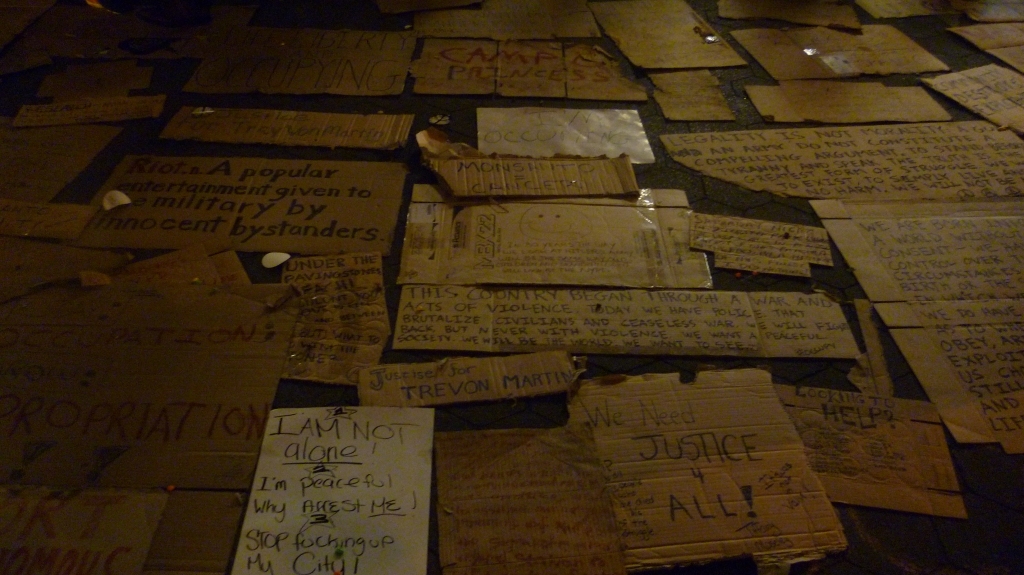![]()
Elegiac Falls – The Anonymous (click to enlarge)
The Institute of Idle Curiosity for Elements of Seduction presents
Elegiac Falls – design for a sanatorium
installation,various media, dimensions variable
Workplace, Schuttershofstraat 45, 2000 Antwerpen / 16 November – 21 December 2014 / Opening Zondag 16 November 2014, 14h00 – 18h00.
Elegiac Falls is the name of a sanatorium, located near a lake and on the edge of a forest and with direct access to the city. The sanatorium is known for the way it wants to help people to come to terms with their instincts. The instinct under treatment at the sanatorium is the natural tendency to shy away from the ambiguity of discursive or bodily interaction between capable humans.
The researchers of the labs of the sanatorium claim that the human being is an unnatural creature, and that ambiguity is inherent to human interaction. It is now widely accepted that human beings make sense of the world and of their own life and ‘identity’ through interaction with others. The whole philosophy of identity and the ‘becoming of a person’ and the nature-nurture discussion are based on this premise. However, what is systematically overlooked is a fundamental asymmetry that characterises human interaction as such: our means of individual expression are much more ‘primitive’ than our capacities of reflective interpretation. This asymmetry has far-reaching but generally undervalued consequences. Language, in whatever form, is always a simplified version of what one ‘really’ would want to say from out of introspection or reflective interpretation. The ‘negative space’ that arises due to this reduction of nuance cannot be filled with ratio, and that is a good thing, as it provides ultimate aesthetic possibilities in social interaction. Human reflection is unnatural in the sense that it has no instrumental natural function. This capability is therefore also to be considered a principal end phase of biological evolution. To be human is to live against the nature of the human.
At Elegiac Falls, patients may stay for short or longer periods. While their bodies are brought back to nature, their spirits become subject of a treatment programme that stimulates aesthetic experience through encounters that seem uncanny at first impression. Many of them never leave again.
For the Institute of Idle Curiosity for Elements of Seduction,
Gaston Meskens
This installation is part of the group show
“Hybrid Corpses and Transgressions of the Flesh -The Fatal Attraction of Bellmer’s Prosthetics Revisited”
Workplace, Schuttershofstraat 45, 2000 Antwerpen / 16 November – 21 December 2014 / Opening Zondag 16 November 2014, 14h00 – 18h00
Voor de expo “Hybrid Corpses and Transgressions of the Flesh” werden de deelnemende kunstenaars door Bert Timmermans uitgenodigd om hun werk te verbinden met het oeuvre van Duits-Franse graficus, beeldhouwer en fotograaf Hans Bellmer. De lijnen die in diens werk werden uitgezet kunnen doorgetrokken worden naar verschillende evoluties binnen de hedendaagse kunst, en de deelnemers gaan een dialoog aan met dit oeuvre. De werken in de expo lichten de artistieke erfenis van Hans Bellmer en zijn fotoreeks ‘La Poupée’ toe, en gunnen ons een blik op hun genealogie. Ze resoneren in een soort van ecologie die zich ontvouwt langs de volgende lijnen: de fascinatie van de (moderne) mens voor machinelichamen, prothesen, cyborgs; de manipulatie van het vrouwelijke lichaam (door de mannelijke blik en het traditionele rollenpatroon); fantoompijnen, hallucinaties en pathosformules; sexuele driften, verlangens en transgressies.
(tekst Filip Van Kerckhoven).
More at https://www.facebook.com/WorkPlaceAntwerp
Group show flyer:


